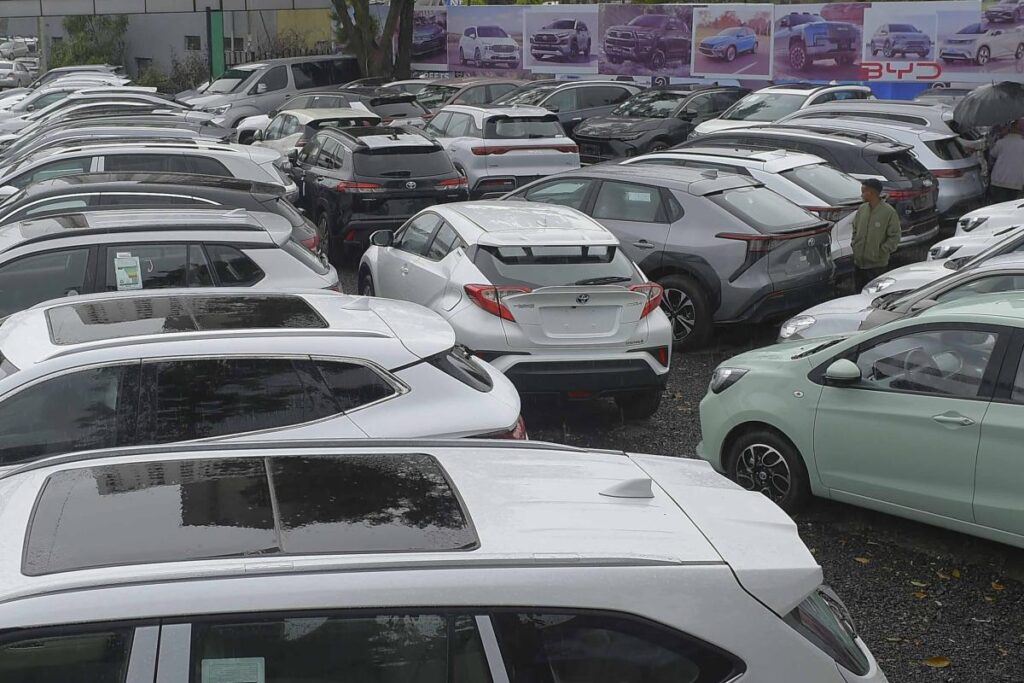In Ethiopia, the rising cost of fuel has prompted individuals like Awgachew Seleshi to turn to electric cars in line with government initiatives aimed at phasing out gas-powered vehicles. However, this decision hasn’t been without significant hurdles. Seleshi’s experience highlights the prevailing challenges, including erratic electricity supplies in the capital, Addis Ababa, alongside scarce spare parts for his vehicle. The difficulties associated with charging his electric car and the limited number of qualified mechanics have raised questions about whether the shift to electric vehicles (EVs) is indeed a viable choice for consumers. Moreover, the substantial costs of imported spare parts, coupled with the poor resale value of EVs, contribute to the skepticism surrounding the government’s ambitious plans.
Ethiopia’s groundbreaking decision in January to ban the importation of non-electric private vehicles marked a significant milestone, making it the first country globally to adopt such a measure. This ban aimed to mitigate foreign currency pressures tied to subsidizing fuel costs while aligning with a global push for greener technologies. Authorities have maintained progress in enforcing the prohibition, reportedly bringing in over 100,000 electric vehicles monthly, with aspirations to scale this up to 500,000 by 2030. This ambition is paired with the expectations of the Grand Ethiopian Renaissance Dam coming online to produce over 5,000 megawatts of electric power, which officials assert will facilitate the transition to EVs.
However, many residents of Addis Ababa express doubts about the feasibility of achieving the government’s lofty electric vehicle goals without adequate infrastructure and service systems in place. The limited number of repair facilities equipped to handle electric cars is a primary concern, and current garage owners who possess the capability to repair such vehicles often report being overwhelmed by demand. Amidst such circumstances, consumers find themselves grappling with limited options and perceived overcharging by mechanics, exacerbated by a lack of competition within the repair sector and a general unfamiliarity with EVs.
Transport Minister Bareo Hassen Bareo remains optimistic about establishing Ethiopia as a model for a green economy through the promotion of electric vehicles. Plans to invest in public charging stations and create a local battery manufacturing plant have been announced as part of the strategy to decrease dependency on imports. Yet, collaborative private efforts aimed at establishing local EV production, notably a partnership between Ethiopian Olympian Haile Gebreselassie and South Korean carmaker Hyundai, have faced significant challenges and have reportedly stalled due to difficulties in sourcing materials.
Economic experts like Samson Berhane acknowledge that the influx of electric vehicles into Ethiopia, despite insufficient supporting infrastructure, presents significant adaptation hurdles for consumers. The high costs associated with electric cars, coupled with contemporary uncertainties around less established Chinese brands, discourage many potential buyers. A meager number of the 1.2 million vehicles operating within Ethiopia are electric, signaling a slow adoption rate amid a growing secondhand market for gasoline-powered cars. Reflecting this trend, businessmen who initially sought to capitalize on the electric vehicle market have often pivoted back to conventional vehicles due to their reliability and ease of maintenance.
Personal experiences further illustrate the disillusionment with electric vehicles in Ethiopia. For instance, businessman Yared Alemayehu faced mechanical issues with his Chinese electric car, ultimately opting for a used gasoline model due to reliability concerns, despite hefty taxes on fuel vehicles. Similarly, taxi driver Dereje Hailu expressed apprehension regarding the viability of an electric vehicle for long distances, especially in areas lacking charging infrastructure. These narratives underscore the broader sentiment prevailing among Ethiopian consumers, balancing the ideals of environmental progress against the backdrop of practical challenges in everyday vehicle ownership. With the ambition of a green future on the horizon, Ethiopia’s transition to electric vehicles will require considerable investments in infrastructure, public awareness, and maintenance capability to ensure sustainability and consumer confidence.

